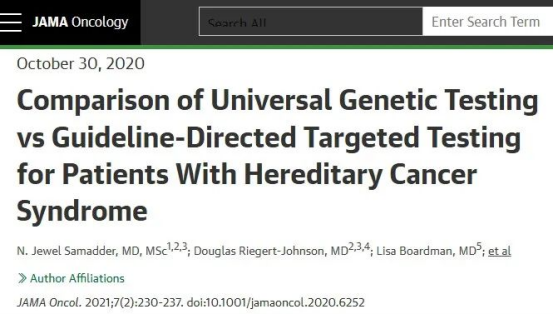What is going on? First, it is important to clarify that cancer itself is not contagious.
Cancer occurs when normal cells in the body undergo abnormal proliferation due to long-term exposure to carcinogenic factors, eventually forming malignant tumors. Tumor cells are completely different from bacteria, viruses, and other microorganisms in terms of morphology, structure, and function. They are not contagious and die quickly once detached from the body. Therefore, contact with cancer patients, sharing utensils, or breathing the same air will not spread cancer.
At this point, some may wonder: since many cancers are caused by viruses and bacteria, and these microorganisms are contagious, doesn't that mean cancer is also contagious?
In fact, the development of certain cancers is indeed related to specific viruses or bacteria. For example:
Nasopharyngeal cancer is associated with the Epstein-Barr virus (EBV),
Liver cancer is linked to the hepatitis B virus (HBV),
Cervical cancer is related to the human papillomavirus (HPV),
Stomach cancer is associated with Helicobacter pylori.
However, it is important to understand that these infections are merely potential causes of cancer, not evidence that cancer itself is contagious. Moreover, even if someone is infected with these viruses or bacteria, they do not necessarily develop cancer.
What Causes Family Members to Develop the Same Cancer?
Genetic factors play a significant role in cancer development. However, what is inherited is not cancer itself, but rather the susceptibility to cancer. Certain cancers are closely linked to inherited genetic mutations, increasing the likelihood that multiple family members develop the same type of cancer. Clinically, these are known as familial or hereditary cancers.
In 2016, The Journal of the American Medical Association (JAMA) published a significant study revealing that at least 22 types of cancer have hereditary traits and can be passed down through families. If a sibling is diagnosed with one of these cancers, the risk of another sibling developing the same cancer increases by 33% compared to the general population.

A study published in JAMA Oncology in October 2020 by the Mayo Clinic analyzed the genetic test data of 2,984 cancer patients and found that 397 patients (1 in 8) had cancers linked to hereditary gene mutations. This means that for these patients, their cancers were primarily caused by genes inherited from their parents.
However, the vast majority of cancers—about 90%—are caused by external factors rather than hereditary ones. A shared living environment, work conditions, and dietary habits within a family can also contribute to the development of the same type of cancer.
Additionally, unhealthy lifestyle habits are another major factor in familial cancer cases. These habits may include smoking, excessive alcohol consumption, lack of exercise, and staying up late.
Although cancer has a hereditary tendency, there is no need to panic. Individuals with a family history of cancer can take preventive measures such as reducing exposure to carcinogens, getting vaccinated against HPV and hepatitis B, undergoing regular screenings, and maintaining a healthy lifestyle to lower their risk.
Six Types of Cancer That May Be "Copied" in the Next Generation
1. Breast Cancer
The lifetime risk of breast cancer in the general female population is about 1%. However, breast cancer has a strong hereditary tendency, especially among close relatives. If a mother has breast cancer, her daughter’s risk is 2-3 times higher than that of the average woman. Additionally, BRCA1 and BRCA2 gene mutations significantly increase the likelihood of developing breast cancer.
Recommendation: Women with a family history of breast cancer should begin breast cancer screening before the age of 40 to prevent and detect the disease early.
2. Ovarian Cancer
Studies show that 10-15% of ovarian cancer cases are linked to genetic factors, primarily mutations in the BRCA1 and BRCA2 genes. These mutations not only increase an individual’s risk of developing ovarian cancer but can also be passed down through families. Women with a BRCA1 mutation face a 40-60% risk of developing ovarian cancer, while those with a BRCA2 mutation have a 20-40% risk.
Recommendation: Women with a family history of ovarian cancer should start screening between the ages of 30 and 35.
3. Colorectal Cancer
Genetic inheritance is a significant factor in colorectal cancer. 20-30% of colorectal cancer cases are closely linked to hereditary factors, with 15% classified as hereditary colorectal cancer. These include familial adenomatous polyposis (FAP) and Lynch syndrome (hereditary non-polyposis colorectal cancer, HNPCC).
Recommendation: Individuals with a family history of colorectal cancer should undergo a colonoscopy every 1-3 years for early detection.
4. Stomach Cancer
Individuals with a family history of stomach cancer have a 2-3 times higher risk of developing the disease compared to the general population. Among young stomach cancer patients, hereditary factors often play a major role.
Recommendation: Regular gastroscopy screenings are recommended for early detection. If symptoms such as upper abdominal pain, bloating, unexplained weight loss, or loss of appetite occur, medical attention should be sought immediately.
5. Nasopharyngeal Cancer
Nasopharyngeal cancer has a strong genetic predisposition and regional clustering and is closely linked to Epstein-Barr virus (EBV) infection.
Recommendation: Individuals with a family history of nasopharyngeal cancer should undergo regular EBV screenings. Avoiding high-sodium preserved foods such as salted fish and pickles can also reduce the risk, as these foods increase the risk of nasopharyngeal cancer by 2-7 times.
Warning Signs: If you experience blood-streaked nasal mucus, persistent nasal congestion, unexplained neck lumps, or middle ear effusion, seek a nasopharyngeal examination immediately.
6. Liver Cancer
In China, 85-90% of liver cancer cases are caused by hepatitis B virus (HBV) infection, which can be vertically transmitted from mother to child, significantly increasing the risk of liver cancer in families.
Recommendation: If a parent has liver cancer and their child has a history of viral hepatitis, they should undergo liver ultrasound and AFP (alpha-fetoprotein) tests every six months for early detection.